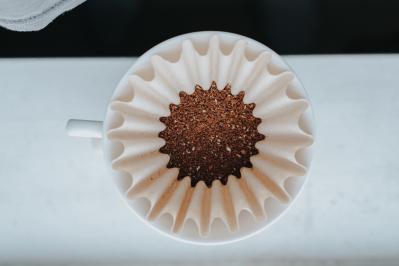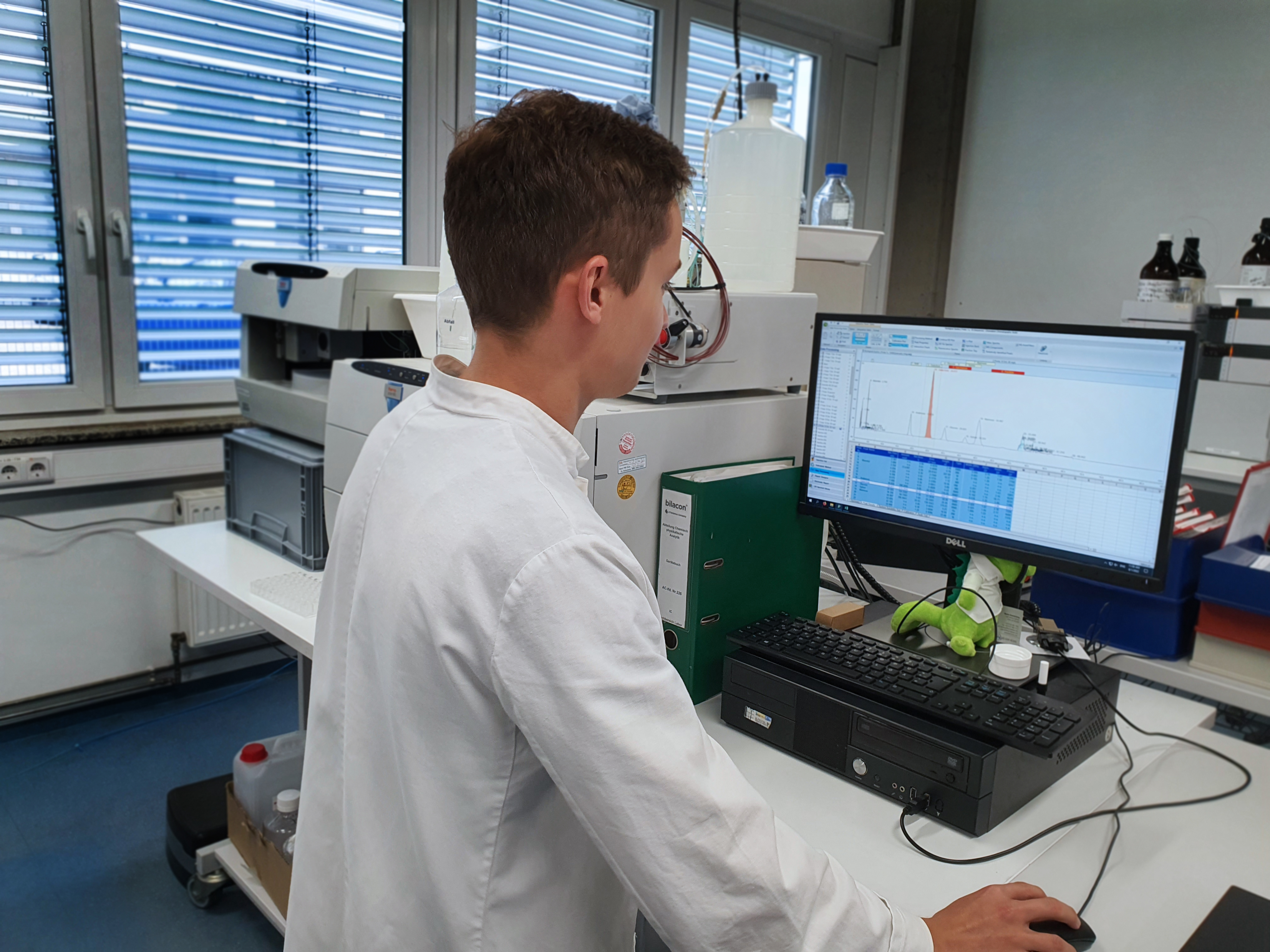Detection of fraud in instant coffee

Soluble coffee, or instant coffee, is dried coffee extract in powder form that is infused with hot water. According to Directive 1999/4/EC, the extract may only be obtained from roasted coffee beans using water.
High-performance anion exchange chromatography (HPAEC) is used to detect adulteration by foreign sugars or other non-coffee additives in instant coffee. As coffee naturally contains certain sugars in characteristic proportions, HPAEC can use the sugar profile to check whether a product is authentic or whether unauthorized substances have been added.
A common form of adulteration is the addition of carbohydrate-containing substances such as maltodextrin, starch or caramelized sugars to increase the volume of the product. Such additives can be identified by detecting specific sugars such as maltose or xylose, which are not present in pure coffee or should only be present in much smaller quantities.
Anion exchange chromatography to detect fraud in instant coffee
High-performance anion exchange chromatography (HPAEC) is used to check the authenticity of instant coffee and detect possible adulteration. This method is primarily aimed at instant coffee manufacturers, importers, retailers and laboratories specializing in food analysis. The aim is to ensure the quality and purity of the product and to protect consumers from possible deception.
A notable incident occurred in December 2021 when Nestlé Germany issued a warning about counterfeit Nescafé Gold products. These counterfeits were sold in old packaging designs that had not been used in official trade for years. Particularly alarming was that the counterfeit instant coffee could contain glass and plastic splinters, which posed a significant health risk. Consumers were therefore urged to avoid consuming these products and to report suspicious purchases to the authorities.
In addition, some instant coffees were found to be adulterated with foreign substances such as maltodextrin or cereal products. Such adulterations can be detected by identifying specific sugars such as maltose or xylose using HPAEC. A positive result indicates the possible addition of plant extracts, which should not be present in authentic coffee.
How does high performance anion exchange chromatography (HPAEC) work?
High performance anion exchange chromatography (HPAEC) was developed to enable precise separation and analysis of polar, ionic compounds such as sugars, organic acids and amino acids. Conventional chromatographic methods, such as high-performance liquid chromatography (HPLC) with refractometry or UV detection, often reach their limits when analyzing these substances, as many sugars do not show strong UV absorption under standard conditions.
HPAEC, on the other hand, uses the different anion charges under alkaline conditions to achieve high-resolution separation. It plays a particularly important role in food analysis, as it is used to identify sugar profiles, detect adulteration and check the authenticity of products such as honey, fruit juices or instant coffee. Its high sensitivity, especially in combination with pulsed amperometric detection (PAD), enables accurate quantification of even the smallest amounts of sugars and sugar derivatives. In addition, there is no need for chemical derivatization of the analytes, making the method time-efficient and particularly accurate.
In addition, HPAEC can also detect added plant parts or extracts, for example from barley, chicory or soy, as these contain characteristic sugars or organic acids that differ from those of real coffee. In addition to unmasking strains, the method can also help to differentiate between coffee varieties. Arabica coffee, for example, has a different sugar profile to Robusta coffee, so that an unintentional or fraudulent addition can be detected. However, the focus of the HPAEC is less on the genetic identification of the coffee beans used and more on the chemical analysis of the finished instant coffee. This makes it possible to reliably determine whether the product has been fortified with non-coffee substances or whether its composition corresponds to that of an authentic coffee.
Overall, the HPAEC was developed to provide a powerful and reliable analytical method for complex biological and food chemistry samples, especially when it comes to quality assurance and fraud detection in the food industry.
Standards for quality assurance and authenticity testing of instant coffee
ISO 11292:1995 and ISO 24114:2011 define essential standards for quality assurance and authenticity testing of instant coffee. Both standards play a key role in detecting adulteration, protecting consumers and ensuring compliance with legal regulations in the food industry.
ISO 11292:1995 specifies a method for the determination of the free and total carbohydrate content of instant coffee by high performance anion exchange chromatography (HPAEC). This method enables the quantitative analysis of individual monosaccharides such as glucose, fructose and mannitol as well as disaccharides such as sucrose. By precisely determining these sugar profiles, adulterations in instant coffee can be detected.
ISO 24114:2011 defines criteria for the authenticity of instant coffee. It specifies limit values for certain carbohydrates which, if exceeded, indicate an adulteration of the product. In particular, the levels of total glucose and total xylose are considered. If these values exceed the specified limits, the instant coffee is considered adulterated.
The limits for the authenticity of instant coffee specified in ISO 24114:2011 are based on statistical analyses of over 1,000 samples of commercial products. Accordingly, the following maximum levels apply:
Total glucose: 2.46 %
Total xylose: 0.45 %
Exceeding these limits indicates that the instant coffee may be adulterated, for example by the addition of foreign sugars or other non-coffee substances.
Detection of fraud in instant coffee by the Tentamus Group
bilacon and QSI are establishing a new method together to verify the authenticity of instant coffee, as it is adulterated due to cost saving. The main component of coffee beans are carbohydrates. Therefore, authenticity can be verified by free and total sugar content. The ISO 11292:1995 regulates the method of analysis by high performance anion exchange chromatography (HPAEC). An aqueous extraction of the free carbohydrates and hydrolysis of the carbohydrates in the coffee sample are prepared. Then, the carbohydrates are quantified by HPAEC-PAD.
The results are evaluated in accordance with ISO 24114:2011. To prove authenticity, free fructose, total glucose and total xylose, which are considered indicator carbohydrates, are of particular interest.
If the maximum permissible concentration of these indicator carbohydrates is exceeded, the instant coffee is considered adulterated.
The processing time is usually 5 working days.

This is how our analysis service works
Sample logistics:
First of all, in consultation with the customer, we determine which specific analyses are required and the time frame in which they are to be carried out. The samples can then either be sent by mail to the relevant Tentamus Group laboratory or delivered in person.
Required sample size:
The exact amount of sample required may vary depending on the type of analysis to be performed. It is recommended to contact the laboratory directly to inquire about the specific sample size and to ensure that sufficient material is available for all planned tests.
Analytical procedures:
We perform a range of chemical analyses to verify the authenticity and quality of instant coffee. A central procedure is the determination of the free and total carbohydrate content using high performance anion exchange chromatography (HPAEC). This method makes it possible to identify adulterations by detecting atypical sugar profiles, as described in the ISO 11292:1995 and ISO 24114:2011 standards.
Inspection intervals:
The frequency of analysis depends on various factors, including legal requirements, the manufacturer's internal quality standards and specific customer requirements. It is advisable to carry out regular checks to ensure the continued quality and authenticity of the product. The exact intervals should be determined in consultation with the Tentamus Group experts.
We ensure the authenticity of your instant coffee
After successful analysis and confirmation of the product quality, we issue corresponding test reports and certificates documenting compliance with the specified standards. These certificates serve as proof for trading partners and end consumers of the authenticity and quality of the instant coffee. Whether a specific seal is awarded depends on the individual agreements and the tests carried out.
To ensure that you are on the safe side with your products and create trust with your customers, regular testing of instant coffee for authenticity is the ideal solution. With little effort, you can avoid expensive product recalls and damage to your image. You also create a basis of trust with your customer base. Let our experts advise you now.